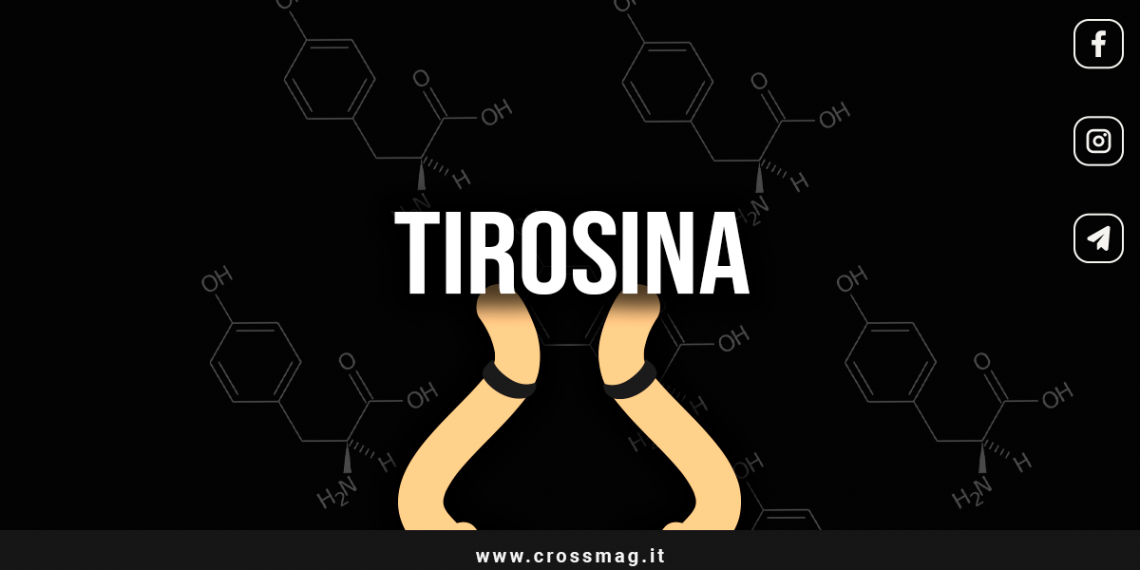La Tyrosine is a popular dietary supplement, used for improve alertness, attention and concentration; it produces important brain chemicals that help nerve cells communicate and regulate mood.
Let's find out the benefits and side effects of this supplement.
Index
What is tyrosine and what is it used for?
Tyrosine is a amino acid produced naturally in the body from another amino acid, called phenylalanine.
Si found in many foods, especially in cheese, where it was, in fact, first discovered. The tyrosine also found in chicken, in turkey, fish, dairy products and most other high-protein foods.
This amino acid contributes to the production of several substances:
- Dopamine: regulates the reward and pleasure centers; it is also important for memory and motor skills.
- Adrenaline and noradrenaline: yesThey are hormones responsible for the "fight or flight" response to stressful situations; they prepare the organism to fight or flee from an attack or perceived damage.
- Thyroid hormones: gli ormoni tiroidei sono prodotti dalla ghiandola tiroidea e sono responsabili della regolazione del metabolism.
- Melanin: This pigment gives color to the skin, hair and eyes.
It is believed that the tyrosine increases levels of the neurotransmitters dopamine, adrenaline and norepinephrine; increasing these neurotransmitters can help improve memory and performance in stressful situations.
Tyrosine benefits
- Improve performance in stressful situations: stress can negatively affect reasoning, memory, attention and cognition by decreasing neurotransmitters. Tyrosine supplementation may improve working memory during a demanding task, cognitive flexibility, and cognition in short-term situations
- It can help people with phenylketonuria: Phenylketonuria is a rare genetic condition caused by a defect in the gene that helps make the enzyme phenylalanine hydroxylase; the body uses this enzyme to convert phenylalanine to tyrosine. Without this enzyme, the body cannot break down phenylalanine, causing it to build up in the body, and also creates a tyrosine deficiency; supplementation with tyrosine could, therefore, be useful for this pathology
- It can be useful in case of depression: Tyrosine increases neurotransmitter levels, so it may act as an antidepressant, but more studies are needed. Depression is a complex and multifaceted disorder, however, individuals with low levels of dopamine, adrenaline, and norepinephrine may benefit from tyrosine supplementation.
Tyrosine side effects and drug interactions
Tyrosine is generally believed to be safe Food & Drug Administration; you can safely assume a 150 mg x kg of body weight, for up to three months.
However, there may be side effects:
- Monoamine Oxidase Inhibitors: tyramine is an amino acid that helps regulate blood pressure and is produced from tyrosine; cheeses such as blue cheese and smoked meats contain high levels of tyramine. Antidepressant drugs known as monoamine oxidase inhibitors block the monoamine oxidase enzyme, and combining these drugs with foods high in tyramine can raise blood pressure to dangerous levels
- Thyroid hormone: supplementing with tyrosine can affect the thyroid hormones triiodothyronine and thyroxine, therefore people on thyroid medications should be cautious about taking tyrosine
- Levodopa: this drug is used to treat Parkinson's disease; levodopa and tyrosine compete in the small intestine for absorption and this can interfere with the effectiveness of the drug.
Before starting supplementation with tyrosine, it is good to consult your doctor!
And you, have you ever taken this supplement? Let us know in the comments and remember to follow us on our Telegram channel
SUBSCRIBE HERE TO THE TELEGRAM CHANNEL













